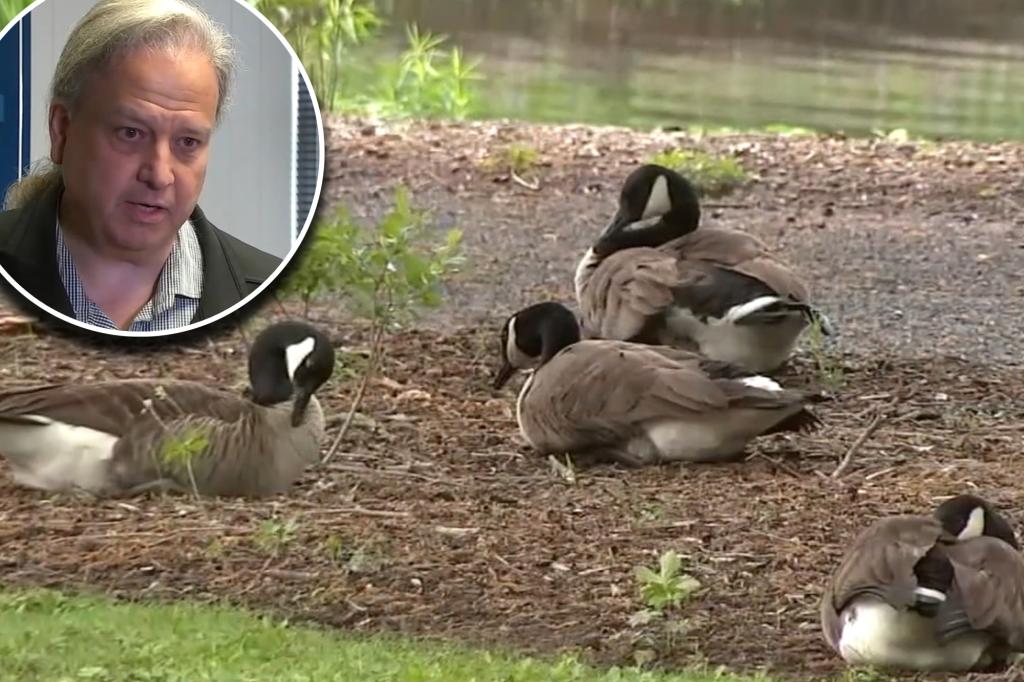The Peapack and Gladstone Borough Council in New Jersey has decided to hire federal wildlife officials to round up around 60 geese in Liberty Park next month and gas them to death with carbon dioxide. This decision was made despite strong opposition from community members, who view this approach as inhumane. Residents argue that the geese are a welcome sight at the park for both kids and adults, and they are against the mass killings. However, town officials claim that the geese have caused issues in the town, with goose droppings containing harmful bacteria that can spread disease and contribute to water quality problems.
Residents are divided on the issue, with some supporting the council’s decision due to the inconvenience caused by the geese, while others are advocating for alternative solutions such as rehoming the birds, feeding them birth control, or scaring them away with larger swans. The council has tried various methods to control the geese population in the past, including using dogs to chase them away, organic compounds as a deterrent, and placing devices in the pond, but none have provided a long-lasting solution. Euthanizing the geese is seen as the best chance of managing the infestation, according to Mayor Mark Corigliano.
Despite the concerns raised by residents and the online petition with nearly 2,000 signatures to save the geese, the council appears determined to move forward with their plan. Some residents have shared their negative experiences with the geese, mentioning hissing, and excessive droppings impacting their daily lives. The controversy over the geese issue is not new in New Jersey, as other cities have resorted to similar actions in the past due to overpopulation concerns. Spring Lake, for example, hired wildlife contractors to euthanize almost 50 Canada geese in 2022, while Edgewater faced backlash in 2017 after exterminating flocks for four consecutive years.
The debate over the fate of the geese in Liberty Park highlights the challenges faced by communities dealing with wildlife overpopulation issues. While some residents view the geese as a nuisance that needs to be managed, others see them as a valuable part of the local ecosystem and a source of enjoyment for visitors to the park. The council’s decision to proceed with the extermination plan reflects the difficulty of finding a balance between preserving public spaces and respecting the interests of the wildlife that inhabit them. Moving forward, it will be important for all stakeholders to continue discussing potential solutions that address the concerns of both sides.
In conclusion, the tension surrounding the geese issue in Peapack and Gladstone Borough illustrates the complex relationship between humans and wildlife in shared public spaces. While the council’s decision to cull the geese is driven by concerns over public health and water quality, residents who oppose the plan emphasize the ethical treatment of animals and the importance of coexisting with wildlife. Finding a compromise that addresses both practical and ethical considerations will be crucial in resolving the conflict and ensuring the long-term sustainability of Liberty Park and its inhabitants. As similar situations continue to arise in other communities, it is essential to engage in constructive dialogue and collaboration to identify effective and compassionate solutions that benefit both humans and wildlife.













